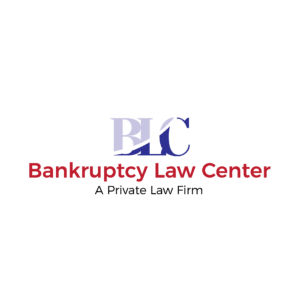For most of us, bankruptcy is the only option when our real estate is in danger. It would be a smart move to start researching regarding the bankruptcy options and how your real estate will be impacted by it.
A real estate attorney in Orlando can help you understand regarding protecting your properties during bankruptcy. You can even set a consultation where you can discuss your available options regarding the properties you own. Before filing for bankruptcy, you must decide which type of bankruptcy is rather suitable for you. Whether you go for Chapter 7 or 13, you must hire a professional to help you with the proceedings of either petition. Having investment properties play a vital role in deciding the type of bankruptcy you can qualify for.
If you go with Chapter 7, you will be required to give up any property that is not protected by the exemption, which almost always includes the real estate investments. If the property has significant equity, the trustee can sell it and distribute the amount amongst your creditors (mortgage payments, liens on the property, or any other debt).
On the other hand, Chapter 13 guarantees the safety of your real estate investment. However, you are required to pay off the debt through a three to five years payment plan. It is the best course of action if you think your income is steady enough to pay your debts in the defined time frame.
Selling Your Real Estate Under Chapter 13
When filing for bankruptcy, there could be many complications that can lead you towards Chapter 13 instead of 7. Here are some of the reasons that can make Chapter 13 a better option for you.
If your real estate investments have significant equity and you want some control over it. Have control over who gets paid once you decide to sell your property.
Regardless of property equity, Chapter 13 comes with various advantages related to real estate.
Having Control Over Your Property
In Chapter 7, if any of your property is not exempt, protected from the creditors, it can get taken by the trustee. It is up to your trustee to decide whether the creditors will benefit from its sale or not. Once it is decided to sell the property, your trustee will hire a realtor and goes through the sale process. Once your property is handed over to a trustee, you have no say in any decision regarding the property. You can only offer the required information and corporate with the trustee’s sale. You can make no decision regarding when the property is sold, how much it is sold for, and whom. These might be enough reasons for someone to go with Chapter 13 bankruptcy.
Have A Say In The Sale With Chapter 13
Chapter 13 offers you much control over your real estate assets. With the help of a Chapter 13 bankruptcy attorney in Orlando, you can hatch a plan regarding the debt repayment. You can decide how you want to deal with your real estate, including when you will sell them, how much, and who will receive the payment through the sale.
However, there must be some laws and regulations that must be followed when planning the repayment structure. Creditors and trustees can have a say in the process. The plan must be approved by the court judge, resolving all the issues related to it. However, the majority of the power regarding the sales will be given to you in Chapter 13 as compared to Chapter 7.
Control Who Will Get Paid From A Real Estate Sale
Once a real estate sale is made under Chapter 13, it is evident that valid lien against that property will be paid first. After that, if you are entitled to any exemption on the property (amount shielded from your creditors), you would be given that sum of money out of the remaining sale proceedings.
Since Chapter 13 is an ongoing process that evaluates your income and expenses, you might not be able to keep that exempt amount. You are required to pay your “disposable income,†an income apart from your business or personal expenses. It can be negotiated due to some exceptions. If your home requires urgent renovation or you need to buy a new vehicle or need to cover medical expenses, your exempt money can go towards it.
Choose Which Debts Can Be Paid First
After getting all the expenses covered, you are still left with some exempt money. Under Chapter 13, there are rules regarding which debt will be on high priority. Despite the priorities, there is some flexibility given to you by Chapter 13. Certain debts must be paid by the end of three to five years, but you can still choose which ones can get paid faster.
For instance, if you want to pay child support payments or to catch up with property taxes, these can be personal and urgent debts to you. You can then list the priority, but less urgent debts like paying off income taxes until the sale of the real estate since the taxes can be paid until the end of the Chapter 13 case and add no extra interest cost or penalties if delayed.
Non-Real Estate Related Benefits By Chapter 13
Besides offering you significant authority over your assets, Chapter 13 can provide many benefits not related to real estate. It can help with your car payments and IRS troubles, cause less damage to your credit score, and save your assets, including vehicles and furniture.
Get The Legal Help
Whether you are looking for a real estate attorney to discuss your asset equity or need consultation regarding Chapter 13 bankruptcy, you can always look for professional help. The Bankruptcy Law Center in Orlando, Florida, can be the most suitable and experienced bankruptcy and real estate attorney in Orlando. Contact us to discuss your legal options and get control over your real estate investments.
